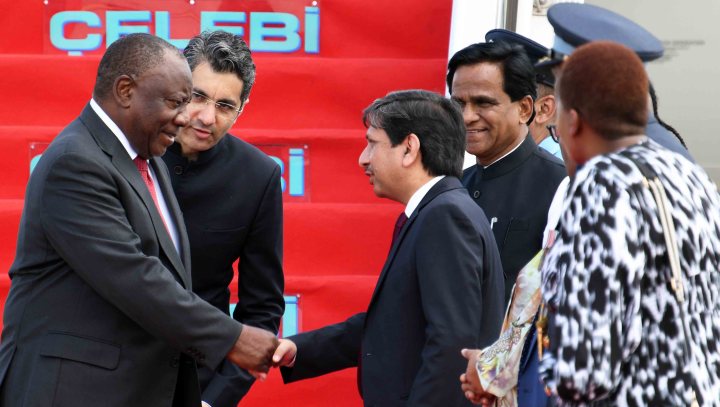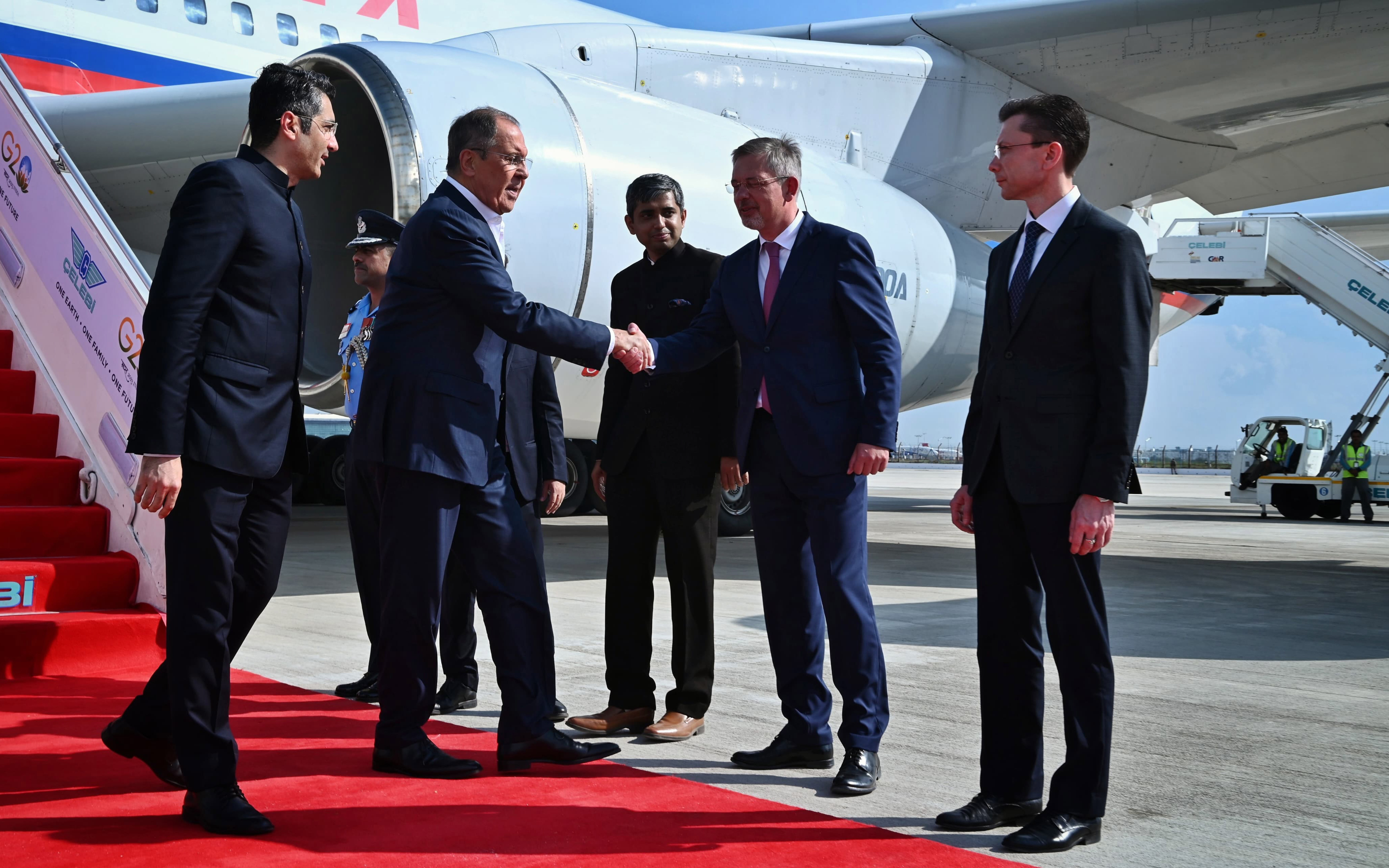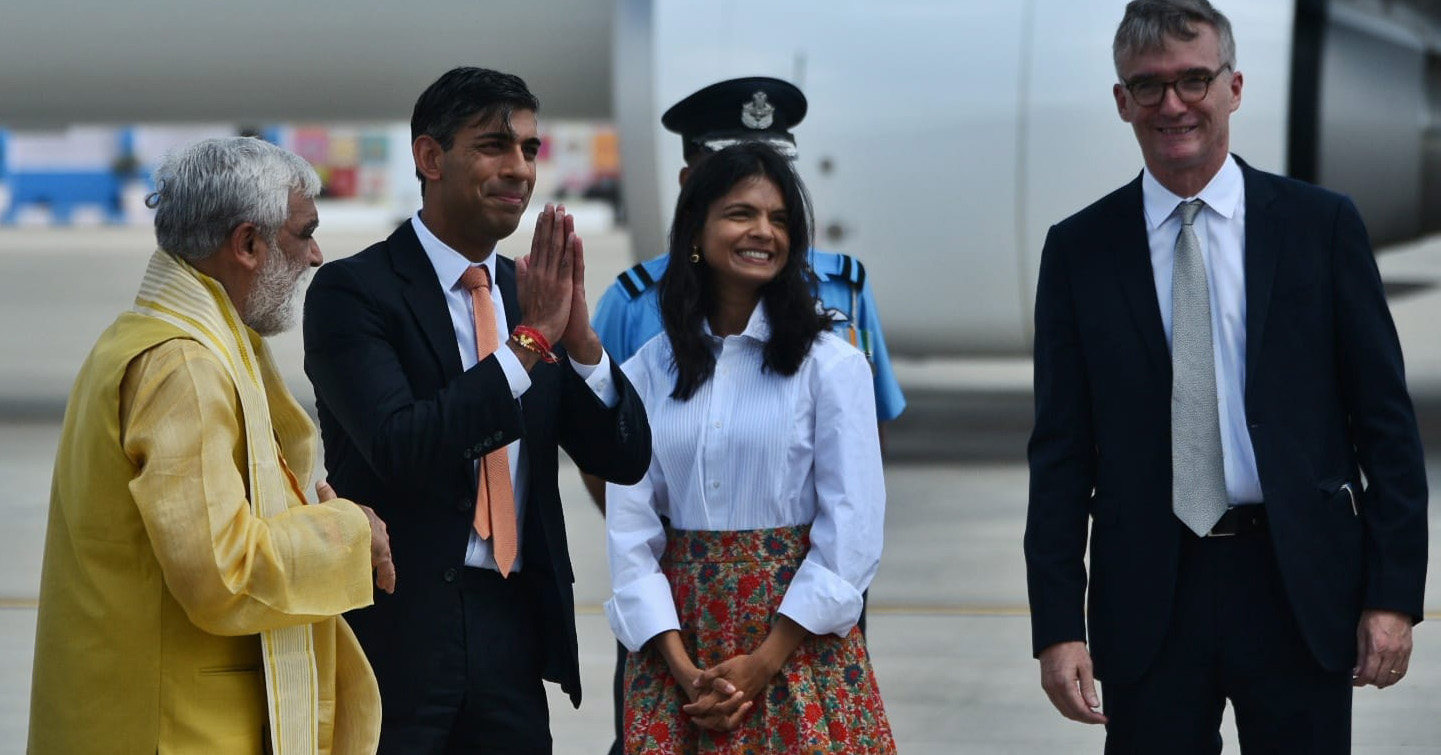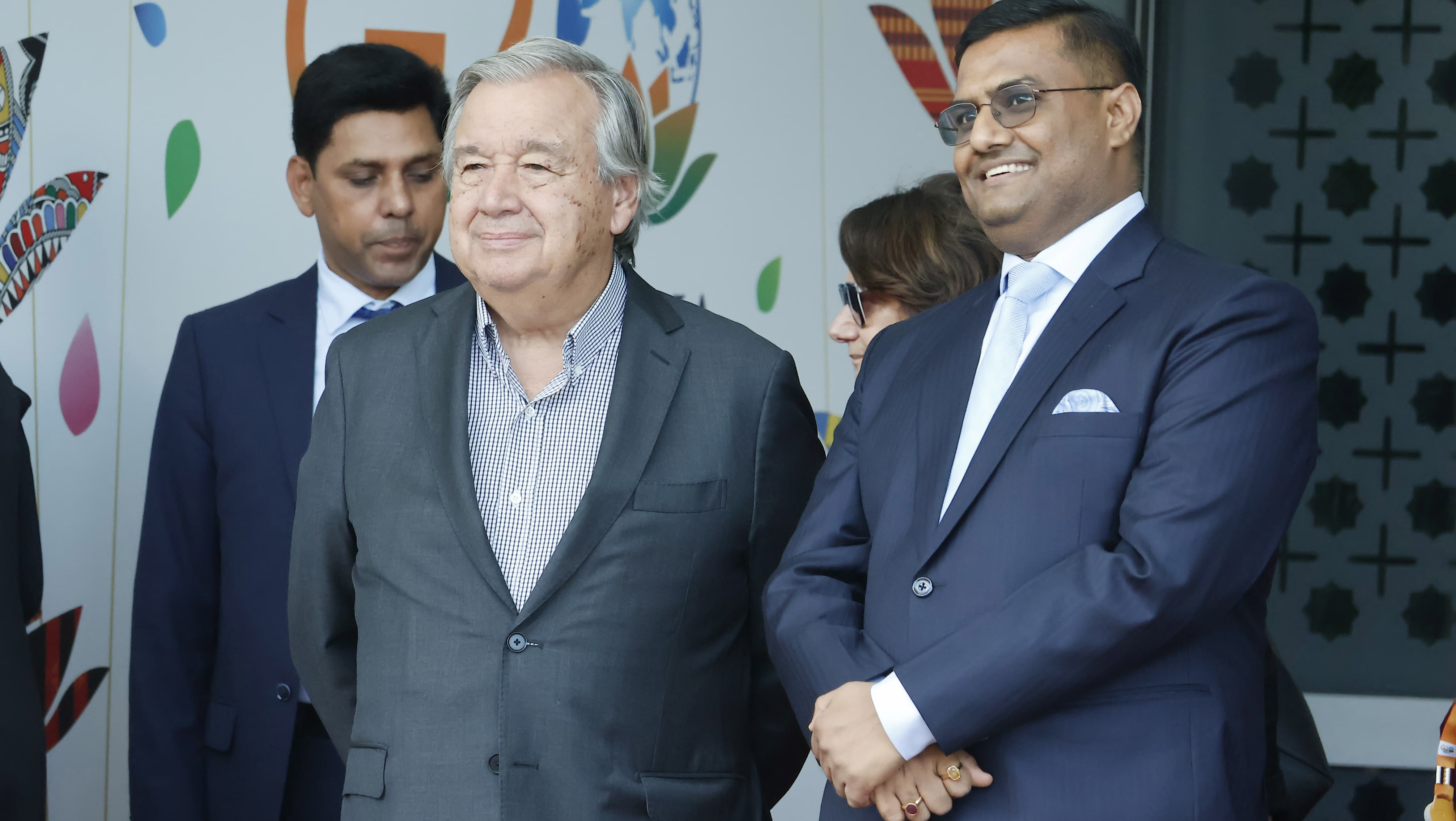AFRICA UNSCRAMBLED OP-ED
The G20 — will the world please stop fiddling while Africa burns

The G20 meeting in New Delhi this weekend is not about China or the US. It is about the severity of the economic and political disaster taking place in Africa that needs to be taken seriously — and whether anyone has the political will to tackle it.
If there was a singular moment that set the course for the post-Cold War world, it was the G7 summit at Lancaster House in London in July 1991.
It was there that US President George Bush senior spurned a proposed “Grand Bargain” with Soviet president Mikhail Gorbachev who had offered to embrace liberal democracy and a market economy in exchange for a sizeable package of economic assistance.
Some argue that Gorbachev was already a spent force, had nothing more to offer and the Soviet Union’s days were numbered.
But Vladislav Zubok’s history Collapse: The Fall of the Soviet Union, reveals that at the cabinet meeting before the summit, US Treasury Secretary Nicholas F Brady said real reform would “turn the Soviet Union into a third-rate power, which is what we want”.
Instead of meaningful assistance, Bush sent Gorbachev to stand in line at the IMF, which dispensed the same medicine to economies whether they were suffering from a sore throat or needed a leg amputated. Gorbachev griped that the USSR was being treated like Costa Rica.
Gorbachev returned to Moscow virtually empty-handed and a month later hardliners attempted a military coup and the Soviet Union soon dissolved into its constituent parts.
The baton was passed to Russian president Boris Yeltsin whose zealous reformers took Russia down the path of economic calamity: rapid privatisation produced a pack of ultra-rich playboy oligarchs while the poverty rate for ordinary citizens tripled to more than 80%. The social safety net was ripped up and the country’s administration fell to rampant crime and Mafia rule.
Little Western support was forthcoming, and investors leapt instead at the easier pickings in Eastern Europe and later China.
Rise of Russia
After eight years of collapse, the Russian public yearned for a strong leader and, on the last day of the millennium, Yeltsin stood down for Vladimir Putin, who was determined to raise Russia from its knees.
A more conservative and measured reform of the Soviet system would have surely produced a better outcome — not that historical “context” excuses the savagery that Putin has inflicted on Ukraine.
But Zubok argues in his book that such events, long after the demise of the Cold War, show the possibility of great reversals and historic surprises 10 or 20 years down the road.
That lesson — that geopolitical myopia can come back to haunt you — is one that US President Joe Biden and his team would do well to take with them into the G20 meetings in New Delhi this weekend.

Minister of Foreign Affairs of the Russian Federation, Sergey Lavrov, arrives for the G20 Summit at Palam Airforce Airport, in New Delhi on 8 September 2023. (Photo: EPA-EFE/Ministry of External Affairs handout)
The media has described the meeting as an attempt to reassert the West’s primacy with the developing world in competition with China, a view reinforced by the pointed absence of Chinese leader Xi Jinping.
But this is not about China or the US. It is about the severity of the economic and political disaster taking place in Africa that needs to be taken seriously — and whether anyone has the political will to tackle it.
In January, the Financial Times’ Martin Wolf challenged the rich nations, warning them that if something was not done the poorer half of the world would face a lost decade in development.
He wrote: “Covid was not these countries’ fault. The lack of global cooperation in tackling it was not their fault. The lack of adequate external official funding was not their fault. The global inflation was not their fault. The war is not their fault. But if the high-income countries do not offer the help they now evidently need, it will unambiguously be their fault.”
Some help has come, but ambiguously, in dribs and drabs.
Ravaged continent
What we have witnessed are military coups and Jihadist terror in the Sahel; civil war in Sudan; unrest and burning in the streets of Dakar and Nairobi; populist politics and fragile governments, and small wars.
Drought in the Horn of Africa, largely induced by climate change, wiped out crops and brought millions of people close to starvation.
Most debilitating of all, more than half of Africa’s countries are in debt distress and interest payments, much higher in Africa than elsewhere, are eviscerating education and health care. UN Secretary-General António Guterres says that almost half of humanity lives in countries that spend more on debt interest payments than on education or health, most of them in Africa.
The affluent world was able to spend its way out of the pandemic slowdown and had economic levers to navigate through the ensuing turmoil and inflation.

Prime Minister of United Kingdom, Rishi Sunak arrives for the G20 Summit at Palam Airforce Airport, in New Delhi on 8 September 2023. (Photo: EPA-EFE/Ministry of External Affairs handout)
While Western consumers complained about empty spaces on supermarket shelves, the residents of African cities experienced hunger, loss of shelter, and a grim daily battle for survival.
Cost-of-living protests, directed mainly against the authorities, have sprung up across the continent, even on Thursday in peaceful Lilongwe, the capital of Malawi.
Anyone doubting the level of dissatisfaction and anger should view the demonstrations of support for military putschists by tens of thousands of young people in Niamey, Ouagadougou and Libreville.
Read more in Daily Maverick: Coup Contagion Threatens New Investment in Africa, AFC Warns
The message that the youth of Africa are sending is that they are extremely fed up — those that have not joined the Jihad or attempted to trek through the desert and cross the Mediterranean in a rickety boat.
G20 Africa focus
The G20 meeting has been billed as an attempt to get the focus, which has been skewed towards Ukraine and China, back on development. The agenda will include expanding the mandate of the World Bank and extending its lending capacity as the primary development financing vehicle under new World Bank President Ajay Banga.
Jake Sullivan, Biden’s National Security Advisor, says their proposals hope to generate nearly $50-billion in lending for middle-income and poor countries alone, from which they hope to leverage an additional $200-billion from allies and partners.
But even this best-case scenario, says Adam Tooze, writing in the Financial Times, is only a fraction of what will be required, especially since the Chinese have mostly turned the tap off.
Will the judgement of history be, just like Lancaster House in 1991, that not enough was done?
William Ruto, the president of Kenya, this week made several proposals for additional sources of financing such as a global carbon tax and a pause on debt repayments.
Hosting the first Africa Climate Summit in Nairobi, he laid out a vision for how the climate crisis represented an opportunity for new forms of partnership and growth.

Secretary-General of the United Nations, António Guterres arrives for the G20 Summit at Palam Airforce Airport, in New Delhi on 8 September 2023. (Photo: EPA-EFE/Ministry of External Affairs handout)
Ruto, who has a PhD in plant ecology, called for investment in renewable energy, green industrialisation, climate-smart agriculture, and nature conservation, all the usual things.
But he warned: “If you don’t solve the debt issue, you can’t solve the climate issue.” He pleaded for a pause on debt and interest repayments.
Let African nations use their revenue for development and for investment in human capital rather than interest payments.
Ruto’s choice of a more market-oriented approach has taken flak from the left and environmentalists for supporting ideas like carbon credits that, they say, would just grant polluters a licence.
But the rapid speed with which Ruto is throwing out ideas shows that he knows that the economic hole that much of Africa is dug into right now is quite deep.
In their explosive essay The Long, Slow Death of Global Development, published in American Affairs earlier this year, David Oks and Henry Williams argued that the only sure route to economic development is through industrialisation.
But for the last couple of decades, industrialisation has been concentrated in Asia, mostly China, and the poor world has experienced “simultaneous deagrarianization and deindustrialization”.
Even as small industry was destroyed throughout Africa, incomes rose in the poor world as a result of the commodities super cycle driven by explosive growth and in building in China.
But that is mostly over, and while critical minerals are still in high demand, the hunt is on for new solutions.
Last week Ruto tied together climate change, debt relief, economic growth, industrialisation, and the integration of African economies into the global value chains into one package. DM



















balls
The article above highlights a plan to generate $50bn of investment to unlock $200m from outside Africa. However, no mention of African countries agency to stop the $84bn of illicit capital outflows from Africa each year (UNCTAD). Nor of the wider total cost in many African countries of ‘facilitation’ that the WEF estimate as 5% of GDP worldwide and, presumably, more as a proportion in Africa. Addressing both of these would be a massive encouragement and multiplier for external investors and is something that African states themselves can fix. This isn’t as one-sided a problem as the article portrays. Let’s not perpetuate the idea of external dependency the article implies.
PS hard to industrialise or maintain industrialisation without reliable power, decent basic education, a good transport infrastructure, a safe and secure environment, and a competitive legal and regulatory framework.
The article, well written and persuasive, skirts the issue of how much of the problems, and the resultant debt burdens are directly attributable to corrupt and incompetent management, resulting from, what is known in South Africa, as cadre deployment – putting your mates and political cronies into positions where competence, integrity and experience are required.
A parallel can be drawn with slavery; it was not Europeans, or Americans who went into Africa over the centuries, including the 18th and 19th that are most pertinent to what has become known as the Atlantic Slave trade, but rather African Chiefs and warlords who marched, in chains and neck-woods, either their own peoples, or those whom they had enslaved to slave markets at the coast, as places such as Goree or Badagerey, whence they sold them to merchants who unsold them to merchants who shipped them over to the West Indies.
Why have only one link in this chain, and NOT even the originating, causal link, who unquestionably bear the lion’s share of any responsibility, been included in the blame game? Because they have the deepest pockets? Because they were the first to show a conscience and act on same as the Quaker/Wilderforce group did from 1760 through to the 1830’s?
Like with the Africa debt problem this article is based on, would it not be helpful to start from the premise, that African actions and non-actions are central, are largely causal of the issue?
A bit of Mea Cupla might go a long way.